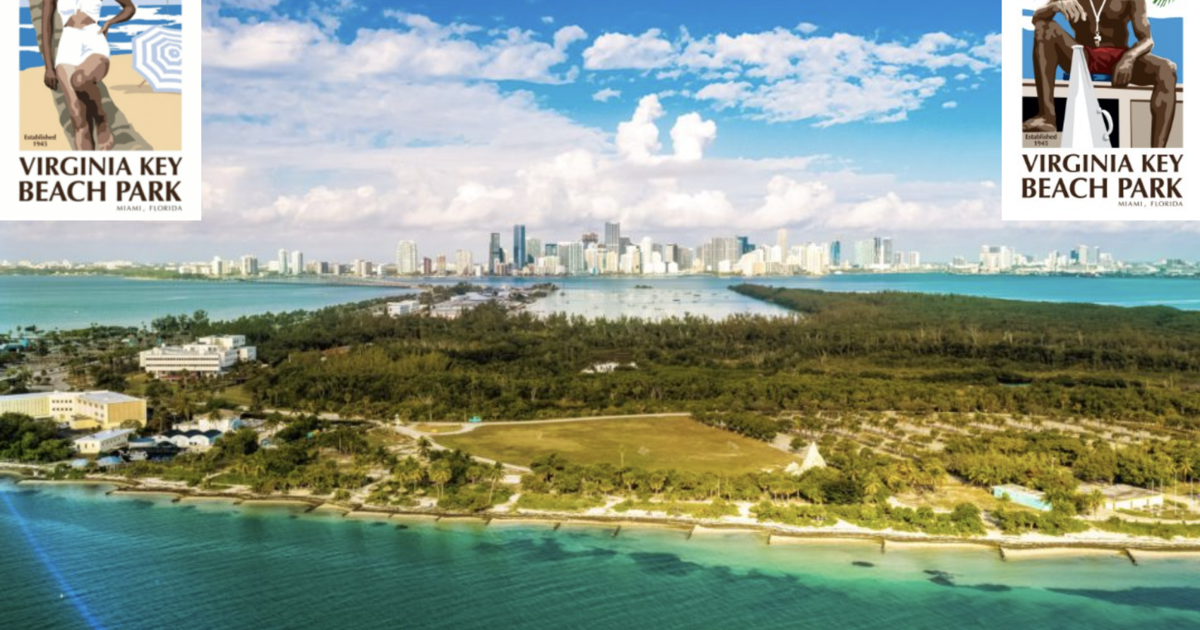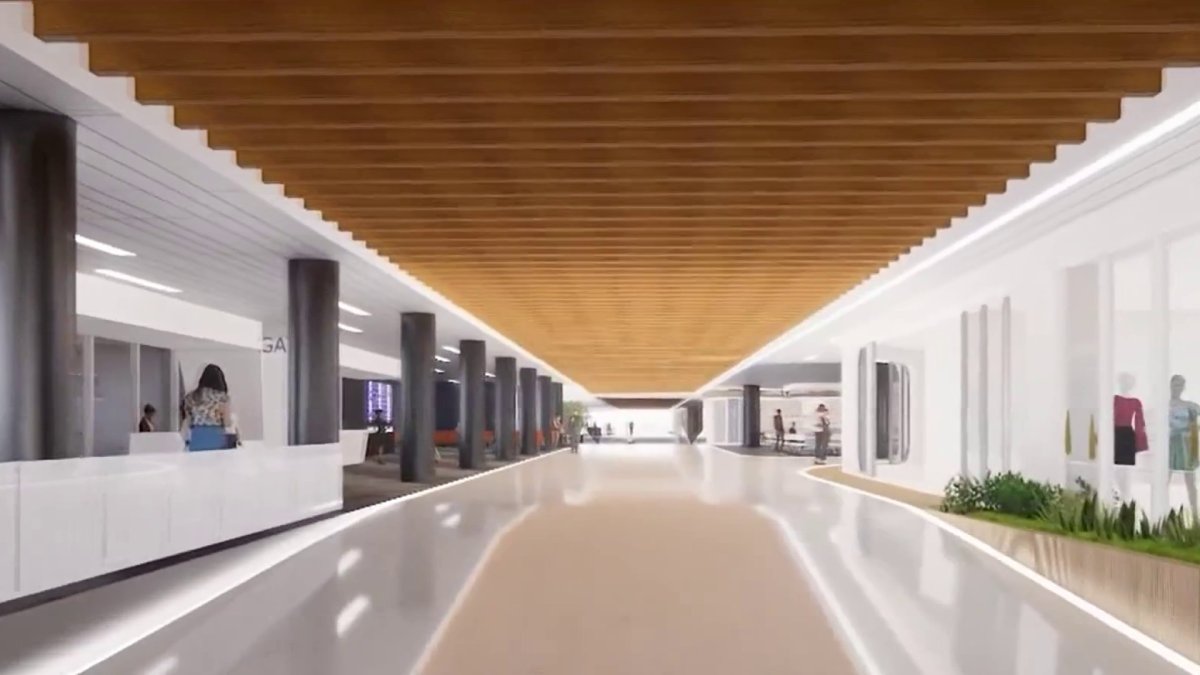Miami City Commission names itself the new Virginia Key Trust Board, ousting all members of the current Trust | News

It didn’t matter that Thelma Anderson Gibson, a legendary figure in the civil rights effort, and who now is in her mid-90’s, woke up early Thursday morning to go to City Hall and explain to the City of Miami Commission — where she once sat — about the importance of the Historic Virginia Key Beach Trust, and what it means to preserving that once-segregated stretch of beach.
“The background is so important. And some of you don’t know how we even got a Virginia Key Beach,” she said, leaning on the speaker’s pulpit, her walker at her side. “It was 1944 and ’45 that Black folks decided to come together, getting a beach for us … us colored people. We were Negroes back then. Many people (don’t) realize we didn’t get ‘Black’ until the ’70’s. Then we became African-Americans in the ’80’s.
“But, as Negroes, we and our children had no place to swim,” she said, before explaining the “beach wars” that took place.
“So I’m hoping and praying this Commission will reconsider taking over the Trust,” she added, noting she came to the meeting even though she felt short of breath in the morning. “Let us feel that we have something that we have control over.”
It didn’t matter that Patrick Range II, who had been the Chair of the Virginia Key Beach Trust and is the grandson of the late M. Athalie Range, Miami’s first African-American commissioner, asked for an apology from the Commission for what he felt were “slanderous” remarks regarding “malfeasance, financial impropriety, and hands in the cookie jar.” None of these descriptives were mentioned in the final audit report of the Trust’s operation, he said.
For the record, that apology never came.
Nor did it matter that a resident, Michael Clarkson — one of 41 public speakers on the subject at Thursday’s meeting — recalled his journey in the family car from Louisville, Ky., the home of famed boxer Muhammad Ali, to come to Miami because Ali trained there. “Whatever you do,” he told the commission, “ put something there (at Virginia Key Beach) to recognize the people who built this city.”
And it didn’t matter that Gordon Eric Knowles, President and CEO of the Miami-Dade Chamber of Commerce, spoke up about the lack of understanding and the significance of that beach, and that “banning the current Board is an insult to the community,” he said.
But, with one swing Thursday afternoon, the Miami City Commission voted to name itself to the new Board, ousting the current Trust, which had worked for two decades to transform the 82-acre Historic Beach Park from an abandoned beach, full of history, to a renewed paradise on Virginia Key.
The one thing missing has been the historic museum, approved 18 years ago, but never built, to honor the legacy of Miami’s pioneers, and to signify the only beach south of Dania Beach where Black people were allowed to go — the same beach where Martin Luther King once visited.
In a 4-1 vote — Commissioner Ken Russell didn’t actually agree on how the ordinance was written or presented at the previous meeting — the City of Miami Commission took over (Russell included) the Virginia Key Beach Park Trust for one year, with Commission Chair Christine King in command.
She will appoint two more members to make it a seven-member committee.
Earlier in the day, Miami City Manager Arthur Noriega indefinitely deferred a resolution that called for the city to enter into a contract for consultant purposes regarding a museum on Virginia Key, as if knowing what the afternoon’s vote’s outcome would likely be.
So, how did this happen?
Blame it on simple, sloppy bookkeeping, or mistakes, that the final audit uncovered, even though Gene Tinnie, the founding Vice Chair of the Virginia Key Beach Park Board Trust, said of the audit, “these are not indictments, these are corrections,” before adding, “Going forward, we want to be free of sensationalism, the grandstanding, and to get things done.”
But, the “dedicated people who have given their lives toward a cause” are out — and, ironically, as Tinnie pointed out, the agenda item came on what is known as “Sir Lancelot Jones Day,” signifying that family’s offering of land that now is Biscayne National Park.
Blame it on Commission Chair King, who requested at last month’s meeting she oversee the Trust for a year to see if she could direct the Board’s focus. But that move only invited others, like Joe Carollo, Alex Diaz de la Portilla and Manolo Reyes to share the spotlight.
Blame it on the Miami Parks Department, which never gave a dollar to the largest park in Miami, according to Range, whose efforts some years would result in the park being self-sufficient. “We can be that again, but I ask you, what parks run themselves? Very few, I would suggest. This is the largest park in Miami. Why can’t it be the best?” he asked.
Blame it on China. Huh?
Well, in an odd timing for a special presentation, Carollo asked for the public comments to be paused midway through, as momentum to support the Trust Board seemed to be reaching a crescendo. The pause was in order to honor local delegates, including one who spoke — and was threatened, Carollo said — in China, which had started to invade Taiwan.
The commissioners then went outside in front of Miami City Hall and raised the “pre-China” flag to “show bilateral support for the freedom of justice while expressing the condemnation of actions of a country that is a large oppressor of people standing in the way of peace in the world,” Carollo said.
It only raised fuel for the fire for some speakers when public comments resumed after the 30-minute pause.
Said one speaker: “You point your fingers at Communist China and you don’t see the hypocrisy in that? … (Just) changes the rules to what you want.”
One speaker questioned why other races, such as Cubans in Miami, get prioritized when it comes to honoring their heritage. On Thursday, for example, on the same agenda, there was an ordinance in place to name approximately 58 acres of land in the area of NW 37th Avenue as “Jorge Mas Canosa Park.”
But, getting back to the blame game …
Perhaps blame it on Miami-Dade Commissioner Keon Hardemon, who just happened to interrupt the proceedings minutes before the vote took place, no doubt further swaying Miami commissioners — if, in fact, they needed any final push, but it was a good show with Hardemon suggesting that the future of the beach, where tourists could be entertained, probably should not rely on “yesteryear” to attract them.
Hardemon praised the efforts of the City of Miami Commission for taking care of resources in the city. “What we’ve found (on the Miami-Dade Commission) is that we appoint committees to do things that we don’t have the time or the expertise … I don’t know why the County has taken so long (to move) on Virginia Key Beach, and the Virginia Key Beach Trust. All these times, the money was set aside.
“We want to see this beach preserved with new activities … we cannot hold on to history without making (concessions for the future generation) … they need to be thinking not necessarily about what happened in the yesteryear … Will they choose Virginia Key Beach? Unfortunately, (some) don’t for (their own) reasons.
“… Make the best decisions for that space,” he told commissioners. “Whatever you need on the County side, utilize the dollars that are already there, get more folks, or come together and work toward a better place.”
At the Sept. 13 meeting, the Commission approved the annual budget of the Virginia Key Beach Park Trust in the amount of $1,630,000 and kept the nine-member Board intact — pending an auditor general’s final report — for the fiscal year commencing Oct. 1.
The total included the customary $300,000 issued in the past couple years, plus an additional $300,000 requested by the Trust for five more positions (which would bring to 23 the number on the payroll) — four of those park rangers to support the 82-acre environmental gem off the Rickenbacker Causeway.
During the previous Commission meeting, Carollo offered several ideas on how the park could attract more visitors and more families.
There was no word on how many employees will be retained or if any others are hired.


